CCCEU GEWG Successfully Hosts Seminar—— "Decoding European Competitiveness: Opportunities and Challenges in Green Development"
On March 25, 2025, the Green Economy Working Group of the China Chamber of Commerce to the EU (CCCEU) successfully held an online seminar themed "Decoding Europe's Competitiveness: Opportunities and Challenges in Green Development." The event brought together policy experts and Chinese enterprise representatives, focusing on major EU policy documents such as The future of European Competitiveness (commonly referred to as the "Draghi Report" ) and The Competitiveness Compass. The seminar provided participants with in-depth policy interpretation and practical insights, helping Chinese companies capture emerging opportunities, understand the latest developments in the EU's green policies, and address related challenges. Around 100 representatives from Chinese and European enterprises and institutions, including members of the CCCEU Green Economy Working Group, attended the event.
Liu Jiandong, Chairman of the CCCEU and Chairman of Bank of China (Europe) S.A., delivered opening remarks and welcomed all participants. He noted that in the current global context of accelerating green and low-carbon transition, green development has become a central theme in both government policies and corporate strategies. Recent EU initiatives such as the Net Zero Industry Act, the Critical Raw Materials Act, and the Carbon Border Adjustment Mechanism are having a profound impact on how Chinese companies position and operate in the European market—bringing both challenges and opportunities. Chairman Liu emphasized that Chinese enterprises are actively contributing to the development of Europe's green industrial chain, advancing technological innovation and strengthening local partnerships, thereby becoming an important force in Europe's green economy.
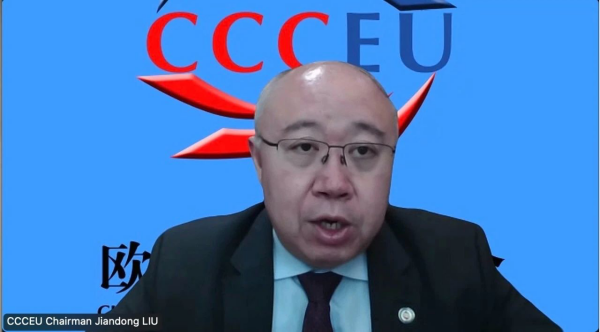
Chen Zhongyi, Vice Chairman of the CCCEU, Chair of the Green Economy Working Group, and Chairman of China Three Gorges Europe, emphasized in his speech that The Draghi Report and The Competitiveness Compass offer critical guidance for understanding the EU's future development strategy. Given the evolving global economic landscape and the EU's ongoing green transition, Chinese companies operating in Europe must closely follow policy trends and take proactive steps. As head of the CCCEU Green Economy Working Group, he pledged that the group will continue to serve as a bridge, promoting green economic cooperation between China and Europe and supporting businesses in achieving sustainable development.
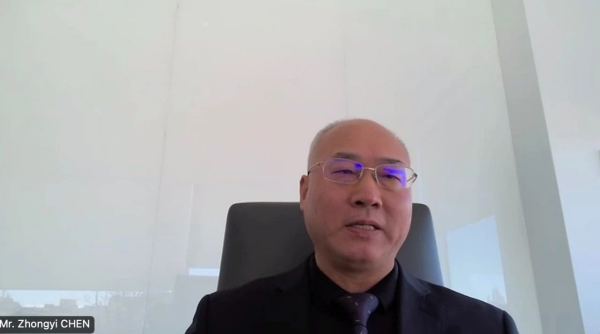
Following the opening remarks, Dr. Dr. Claus Zimmermann, European policy expert and partner at global law firm Ashurst, provided an in-depth analysis of the Draghi Report, along with the EU's latest trends in investment and trade policy. He highlighted key challenges Europe currently faces, including high energy costs, regulatory barriers, weak innovation capacity, and heavy reliance on external sources for critical raw materials. In response, the EU is strengthening its industrial resilience and technological sovereignty through various policy tools, upgrading its trade defense instruments, and expanding its global trade network to reduce reliance on China. Zimmermann noted that while China is the EU's second-largest trading partner and top source of imports, tensions remain over issues such as market access and subsidies. He also emphasized that the EU is pursuing a "strategic autonomy" agenda, managing risks through tighter foreign investment screening and technology export controls.
Based on these observations, Zimmermann offered several strategic recommendations for Chinese companies: on compliance, closely follow up EU policy developments; on professional support, collaborate with local experts familiar with EU procedures to mitigate risks; on government relations, proactively engage with EU institutions to build trust; and in market strategy, establish innovation hubs and strengthen digital and localized operations.
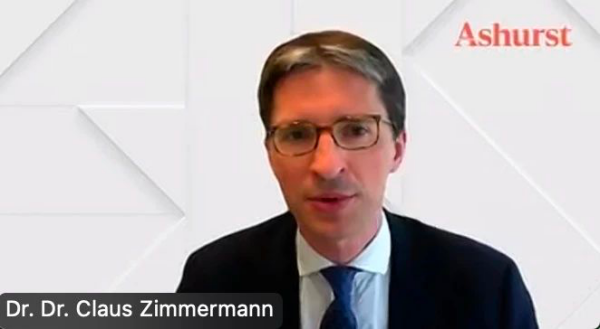
The third section of the seminar was company representative presentation, hosted by CCCEU Secretary General Fang Dongkui.
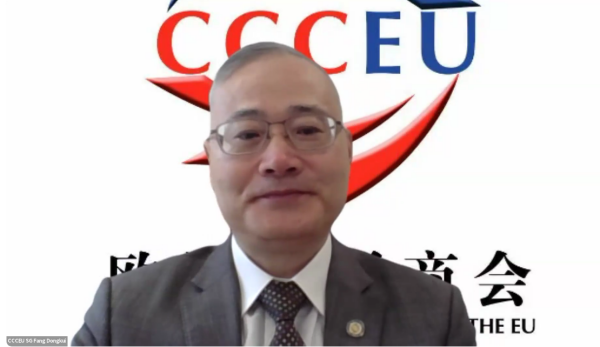
Wang Quanliang, Chief Compliance Officer at China Three Gorges Europe, presented a detailed overview of the company's business strategy and investment logic, offering valuable insights for Chinese firms looking to expand abroad. Since its establishment, China Three Gorges Europe has transitioned from equity investments to active operational management. In Spain alone, it has secured around 2 GW of renewable energy capacity through six transactions, ranking among the country's leading players. Wang outlined the company's investment approach, which involves formulating strategies based on country and sector research, timing investments with precision, selecting high-quality assets, enhancing value through post-investment management, and expanding into cutting-edge areas such as energy storage. The company is advancing solar-wind-storage integration, upgrading aging assets, participating in local market mechanisms, and has already launched several storage pilot projects in Spain.
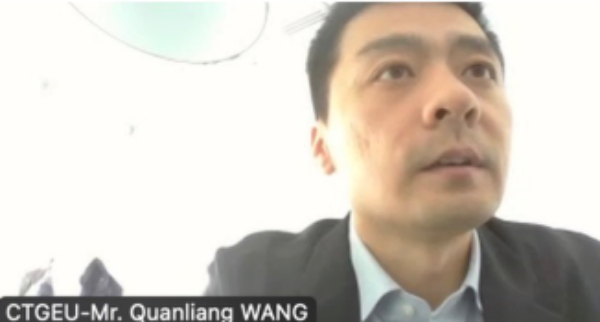
Li Jing, Vice Chairperson of the CCCEU, Vice President of Legend Holdings Europe, and host of the seminar, also delivered remarks during this session. When asked whether Europe's green transition will continue, she affirmed that it would — not only due to emission reduction commitments but also because of its relevance to energy security, pricing, and industrial competitiveness. With the new EU Commission elevating "industrial competitiveness" as a top priority, ambitious local content targets in green industries—while difficult to achieve—reflect clear policy intentions. She proposed classifying sectors based on the EU's policy stance into four categories: fully open, manufacturing ownership, technology ownership, and protective. She warned that key sectors such as batteries may be shifting from "manufacturing ownership" to "technology ownership," urging Chinese companies to closely track EU policy shifts and tailor their overseas expansion and localization strategies according to sector-specific characteristics.
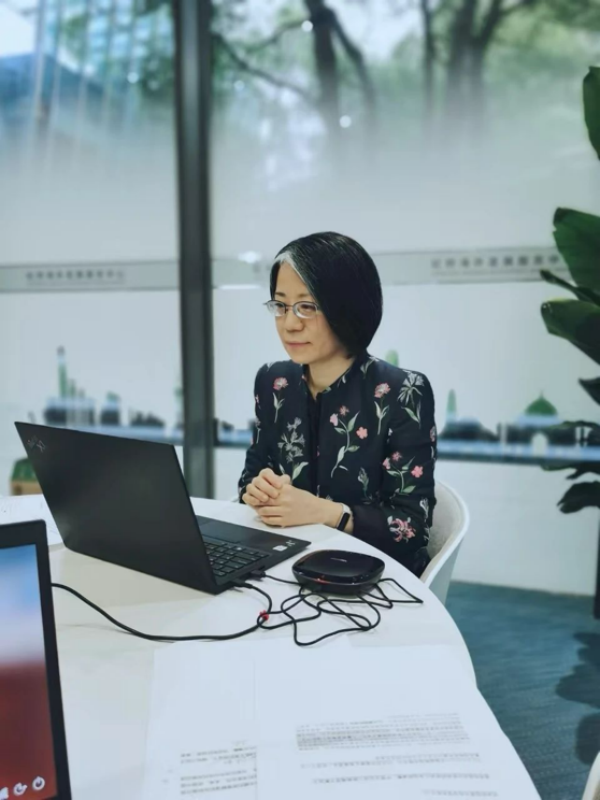
Zhang Hui, Chair of CCCEU Automotive Working Group and Vice President of NIO Europe, echoed Dr. Zimmermann's analysis of the Draghi Report, and expanded the discussion to include the newly released EU Automotive Industry Action Plan. The plan outlines key focus areas: innovation and digitalization, clean mobility, competitiveness, workforce development, and a fair competitive environment. Zhang noted that for Chinese enterprises, "market-for-technology" may become the prevailing trend. He summarized six major opportunities for Chinese companies going global: the revision of carbon emission calculation standards offers market space; legislation related to electric vehicles will stimulate and expand demand; investment in charging infrastructure will enhance consumer adoption; collaboration between China and Europe in smart and digital mobility offers growth potential; and regulatory simplification in the EU further supports market entry. At the same time, he acknowledged challenges such as the slowing pace of decarbonization, requirements for local production, and evolving policy landscapes. Looking ahead, Zhang highlighted the importance of green corporate fleets, the EU's connected and autonomous driving alliances, and the need to closely follow policy changes and data security developments.
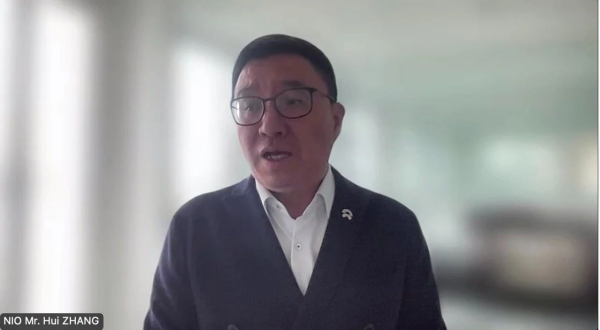
Lin Wenpei, Director of Government Affairs at CATL Europe, emphasized that in light of rising geopolitical uncertainty, industrial localization and regionalization have become inevitable trends. CATL began its global expansion as early as 2014 and has actively participated in Europe's green transition by increasing investment in power batteries and energy storage. It has established the first local manufacturing base in Germany among Chinese battery makers, encompassing production, testing, R&D, and talent development. In addition, CATL is expanding capacity through both self-built and joint venture models in Hungary and Spain. The company is also exploring a "technology licensing + service" cooperation model to empower local European enterprises and foster a win-win green energy ecosystem. Lin stressed that the earlier localization strategies are implemented, the more advantageous it is for talent development, organizational adjustment, and resource coordination—thus enabling more stable and sustainable China-EU green industry collaboration.
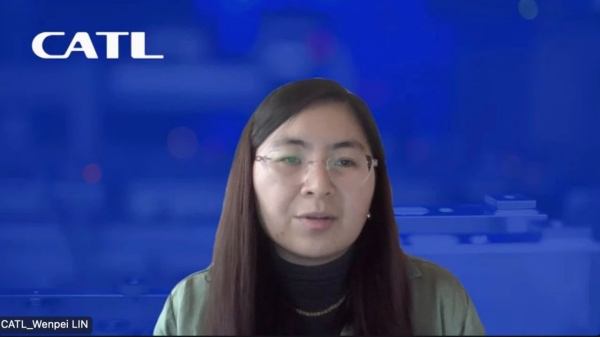
At the close of the webinar, Liang Linlin, Director of Communication and Research at the CCCEU, moderated the Q&A session. Participants actively raised questions, engaging speakers in discussions on EU digital regulations, long-term global strategies for Chinese firms, and China-EU tariff-related concerns.
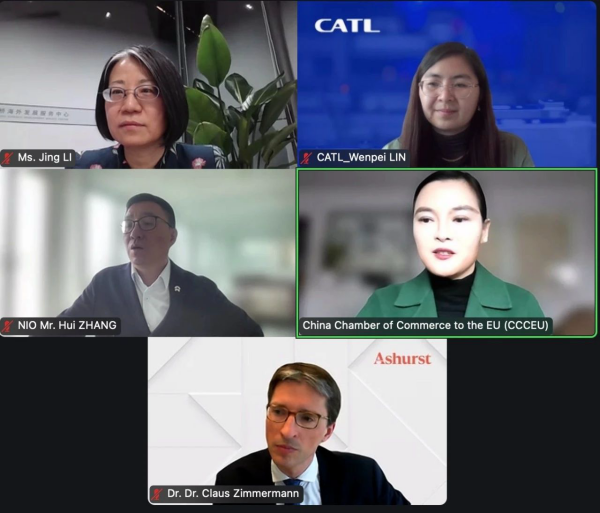
The seminar was hosted by the CCCEU Green Working Group, with China Three Gorges Europe as the chair organization, Lenovo Holdings Europe as the organizer, and coordinated by the CCCEU secretariat.

 Login
Login Login
Login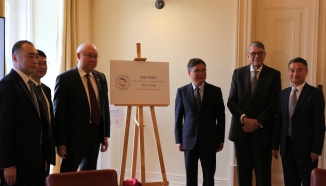 CCCEU Launches Automotive Working Group in Lisbon | 2025 Portugal-China & Europe-China Cooperation Development Forum Successfully Held
CCCEU Launches Automotive Working Group in Lisbon | 2025 Portugal-China & Europe-China Cooperation Development Forum Successfully Held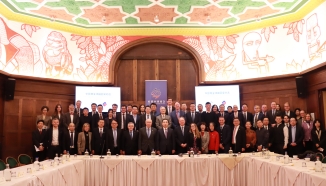 CCCEU, EUCCC Host 3rd EU-China Business Leaders Roundtable Dialogue
CCCEU, EUCCC Host 3rd EU-China Business Leaders Roundtable Dialogue



